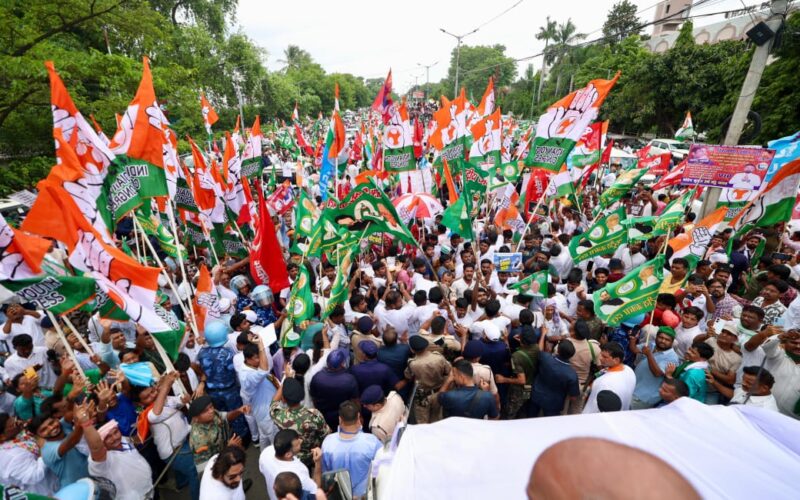Patna (National Times): With assembly elections just months away, a major political row has erupted in Bihar over the Special Intensive Revision (SIR) of the voter list being conducted by the Election Commission. While the Commission and ruling NDA insist it’s a routine verification exercise, the opposition is calling it a deliberate attempt to disenfranchise crores of voters—especially from the Dalit, OBC, and minority communities.
What Is the Voter Verification Issue?
As part of its pre-election preparations, the Election Commission has launched a comprehensive update of Bihar’s voter roll, covering over 7.89 crore voters. Under the SIR process, voters are being asked to submit identity and residency documents such as:
- Aadhaar card
- Birth certificates
- Ration card
- Land records predating 1987
- Parent’s birth certificates
The Commission says this process, undertaken after 22 years, is aimed at removing fake voters and updating the list with eligible citizens.
Why Is the Opposition Protesting?
Key opposition parties, including the RJD, Congress, and AIMIM, have strongly objected to the exercise. Here’s why:
- Time Crunch: With elections drawing close, the opposition says verifying the documents of nearly 8 crore people in such a short window is impractical. RJD leader Tejashwi Yadav dubbed the process “votebandi” (vote-ban), alleging it aims to suppress votes from marginalized communities.
- Document Hurdles: Many rural and poor residents, especially those from disadvantaged castes, may not possess old land records or parental documents, says AIMIM’s Asaduddin Owaisi. He compared the process to citizenship verification, warning it could disenfranchise minorities.
- Changing Rules: The opposition has also flagged inconsistent communication from the Election Commission. They say voters were initially told they could submit documents later, but now face a hard deadline of July 25.
- Potential Voter Removal: The opposition warns that 2 to 4 crore names could be struck off, alleging it’s part of a broader political strategy by the ruling BJP-NDA to manipulate the electorate.
Election Commission and NDA Respond
In response, the Election Commission has called these claims baseless. It asserts that the SIR is a standard pre-election procedure, and that no eligible voter will be excluded. The Commission has also clarified that guidelines issued on June 24 remain unchanged, and that the process aims only to enhance transparency and eliminate fraud.
NDA leaders, including former CM Jitan Ram Manjhi, have come out in support. “Only those afraid of losing their fake voters are protesting,” he said. The BJP claims opposition parties fear a clean-up of the list because it would cut into their vote bank of fraudulent entries.
Public Protests and Legal Battle
Protests have intensified across Bihar, with opposition parties holding rallies, road blockades, and public awareness campaigns. They’re telling voters this process could cost them their fundamental right to vote.
Adding a new twist, several leaders including Kapil Sibal, Mahua Moitra, and Yogendra Yadav have moved the Supreme Court, demanding the process be halted until after the elections. The top court will hear the matter on July 10. Meanwhile, BJP-aligned lawyer Ashwini Upadhyay has filed a counter-petition demanding voter verification across India, further complicating the legal landscape.
What’s at Stake?
With Bihar’s political future hanging in the balance, the outcome of the Supreme Court hearing could be pivotal. A stay on the verification process would hand a major win to the opposition, while its continuation may fuel further unrest and polarization in the run-up to the elections.
For now, Bihar finds itself in the throes of yet another political flashpoint — this time over who gets to vote.

